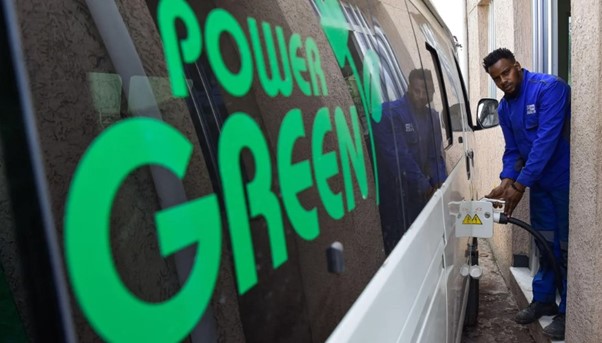
Electric Vehicles Starting to Overtake Gas-Powered Cars in Addis Ababa
In Addis Ababa, Ethiopia, long lines at gas stations have become common due to recent fuel shortages and price increases. However, electric vehicle (EV) owners like Mikial Belayneh are bypassing these problems entirely. Belayneh, who drives a Toyota bZ4X, an imported EV, says a full charge is sufficient for two days, and he no longer waits in line for petrol.
The shift to EVs in Addis Ababa reflects a broader transition in Ethiopia, driven by the government's ambitious goal to reduce poverty and promote cleaner transportation. Alongside traditional vehicles, electric buses, minibuses, cars, and motorbikes are increasingly seen on the city's streets. The Ethiopian government forecasts that the number of EVs will more than quadruple by 2032, largely due to its pioneering decision earlier this year to ban the import of all gas-powered passenger vehicles. Ethiopia became the first nation to implement such a ban, effectively lowering the customs tax on imported EVs from up to 200% to just 15%.
This policy aims to encourage EV adoption and stimulate local manufacturing. Ethiopia-based Belayneh Kindie Group, which assembles EVs from parts imported from China, has benefited from reduced import tariffs on EV components. The company reports that demand for EVs is rapidly increasing.
The Push Towards Electric Vehicles
Ethiopia's push for EVs is partly driven by the high cost of importing fuel and the country's reliance on clean hydropower, which accounts for 96% of its electricity. "They really are a clean-energy country," said Jane Akumu of the United Nations Environment Programme. "Why import oil when you have local electricity available for your vehicles?"
The Ethiopian government's total ban on gas-powered cars, effective from January, was unexpected and has set a precedent. Ethiopia's ability to swiftly implement environmental policies contrasts with the more prolonged processes in democratic nations. The government had previously banned leaded gasoline in the early 2000s.
Despite the increase in EVs, car ownership in Ethiopia remains relatively low, with about 1.2 million cars on the road, or one per 1,000 people. In comparison, car ownership rates are much higher in countries like the US and Nigeria. High taxes on gas-powered vehicles have historically kept car ownership low, while reducing or eliminating taxes on EVs aims to make cleaner transportation more accessible.
Challenges and Opportunities
Although the number of EVs in Ethiopia is rising, the cost remains high, with EVs primarily purchased by high-income individuals. Organizations like the World Resources Institute are advocating for increased investment in electric buses and public transport to make EVs accessible to a broader population.
Within two years of initiating its 10-year goal to introduce over 100,000 EVs, Ethiopia has already seen EVs make up nearly 10% of its vehicle fleet. The Ethiopian government is pleased with the progress and remains committed to reducing environmental pollution from gas cars.
Ethiopia's approach is unique, but electric vehicle adoption is also growing in other African countries. For example, in Nairobi, Kenya, electric motorbikes are becoming more common, thanks to tax incentives that led to a 500% increase in their numbers over the past year. Nairobi has also introduced electric buses to its public transit system.
Both Moses Nderitu of electric bus company BasiGo and Hezbon Mose of e-bike company Ampersand see the rise of EVs across Africa as a significant shift. They compare it to the early adoption of mobile phones in the continent. Nderitu believes that with increased infrastructure and government subsidies, EV adoption will continue to grow.